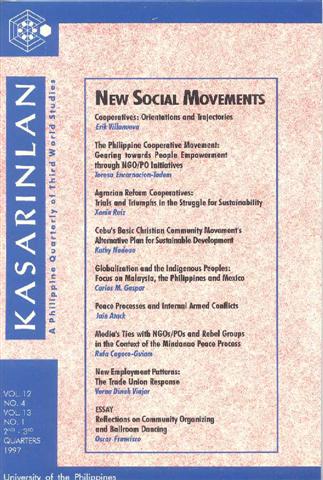Media's Ties with NGOs/POs and Rebel Groups in the Context of the Mindanao Peace Process
Abstract
Due to threats from local warlords, influential politicians and, wealthy migrant capitalists, media practitioners in Cotabato are generally conservative and tend to be pragmatic. While not direct party to the peace talks, the media’s role as a vehicle of information on the peace negotiations between the Moro National Liberation Front (MNLF) and Government of the Republic of the Philippines (GRP) was crucial. However, the local NGOs and POs generally think that media coverage of the peace process was insufficient because it overlooked their related activities and the historical roots of the Mindanao conflict. For their part, the media perceive the NGOs and Pos as leftist and not as sources of vital information. The media attributed the inadequate reportage of the peace talks to lack of creativity among local journalists, secrecy of the negotiations, government’s lack of transparency, and the media owners capitalist orientation. They believed that the management had the prerogative to set what to print and to air but it appeared that self-censorship was more at work. To be truly facilitative, media must seek out NGOs and Pos which in turn, must build friendly ties with the former. The peace process, being a delicate matter, requires media persons to be sensitive to the various ramifications of their news coverage.
Section
Features
Keywords
Media, NGO, PO, Mindanao, Peace Process
By submitting a manuscript, the authors agree that the exclusive rights to reproduce and distribute the article have been given to the Third World Studies Center.



